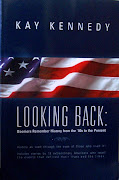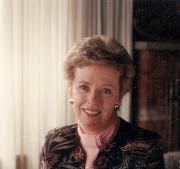The ‘60s was such a complex decade that it will definitely take more than this article to explain it. So I’m only tackling a small portion of it this time.
The ‘50s ended with Cuba turning to communism under the leadership of Fidel Castro, the revolutionary who ousted President Juan Batista. In my book Looking Back, Celeste Cañizares Dieppa recalls her childhood playing with the Batista children, then the day men in long beards took over the country. She remembers the hardships they faced as her father was jailed and her mother continuously interrogated. Life became a struggle to survive until they finally were allowed to emigrate to the United States.
The ‘50s closed with rock ‘n’ roll music firmly entrenched as the music of choice for young people. No longer was the safe, predictable easy-listening or big band music of their parents enough to keep the Boomer generation content. They wanted music that expressed their rebellious yearnings. In addition to rock music, old folk music was making a comeback as young people discovered the songs and learned to pick guitars. then gravitated to folk music centers in the Village in New York City and San Francisco. They would soon change to protest songs as the '60s emerged as the decade of social activism and society drop-outs.
Also in the late ‘50s, the Russians launched Sputnik, which started the space race between the United States and Russia. Before the end of the '60s, an American astronaut would walk on the moon!
The ‘60s started as such a hopeful decade. The economy was booming and we had a new, young president who inspired great expectations, including the promise to put an American on the moon before the end of the decade. John F. Kennedy’s years in office are remembered as Camelot, with a photogenic wife and their two young children introducing much-welcomed youthfulness to the dignified old White House. The country embraced the First Family and everything they represented: vitality; hopefulness; unselfish service to the country; activism. Kennedy’s Peace Corps offered an exciting opportunity for young Americans to give of themselves to others who were in need. Many joined the Peace Corps to build homes, dig wells, and educate people in underdeveloped countries. We who were young then had the world by the horns, and nothing could hold us back.
Camelot ended on a day in November, 1963 when a loner and loser named Lee Harvey Oswald shot and killed Kennedy as his motorcade traveled through downtown Dallas. The nation was horrified! That was the defining moment in a lot of young lives. Suddenly, all that had been safe, good, and possible in our lives was turned into a tragedy beyond our comprehension. After that one despicable act, no longer would we ever believe in fairy tales, nor would a great number ever trust our government to tell the truth.
Amidst the general optimism during the early ‘60s before Kennedy’s death, young people feared the Cold War and the nuclear bomb that could destroy us all. They were determined to try and change the world so that no other generation would have to live with the threat of annihilation triggered by a crazed leader in our country, Russia, or anywhere else in our world . Our greatest fear almost became a reality in October, 1962 during the Cuban Missile Crisis. A nuclear disaster was narrowly averted when Russia finally responded to President Kennedy’s demands that they pull their missiles out of Cuba.
Two other significant historic events during the early ‘60s ensured that that our world would never be the same. 1) Birth control pills were made available, giving young women reproductive choices. 2) The civil rights movement for blacks was born and was to become a rallying cry that would lead to angry protests around the country.
1) Birth control ensured that young women’s lives would change. If they wanted to delay child-bearing, for the first time ever they had a choice. Birth control meant that women could concentrate on building careers if they chose, or stay home and raise children. Women had been in the workforce in large numbers since World War II when they were called upon to pick up the tools of industry to keep our country humming. But they were never given the same opportunities that men were given because they were expected to quit after a couple of years to have children.
Women didn’t receive the same pay as men for the same jobs because they weren’t considered providers for their families—that was a man’s job. Never mind the women who were sole providers because of the death of their spouse or a divorce. Divorce was still a dirty word, and those women who were divorced were often looked down upon by their male bosses as having somehow been the ones at fault for their position.
Big business has always had a particular interest in women’s reproductive rights because as long as women remained shackled to home and the hearth, wages during their short foray into the working world could be kept low. Profits for big businesses overrode women’s rights and still drive the arguments against planned parenthood today. Once the burden of unexpected pregnancies was lifted, women could demand equal pay and rights in the workplace, increasing wage costs.
Married couples could delay childbearing until they were psychologically ready and financially capable of supporting children, but birth control also changed the sexual attitudes of young, unmarried women and teenagers. With no fear of pregnancy, they could engage in a promiscuous lifestyle—and did! Suddenly, sexual activity on movie screens and in real life ratcheted up.
2), The civil rights movement pricked the conscience of young people who had watched on their television screens as Central High School in Little Rock was integrated, and in Alabama, Rosa Parks refused to move to the back of a bus, where blacks were expected to ride. It also heralded a crisis of conscience when the young people trying to help with voter registration and integration in the South were beaten and killed. Black residents in large cities across the country soon began rioting, demanding change.
At the same time that this was going on, the plight of poor whites and elderly people across the country was being made public as President Lyndon Johnson declared a war on poverty and tried to get legislation passed to ensure that all of America’s citizens were provided with equal opportunities, and given a boost up the economic ladder.
The unfortunate legacy of President Johnson is that he also escalated the war in Vietnam after his administration lied to the American people about the Gulf of Tonkin incident. His place in history was regretfully diminished during this period as his administration self-destructed amidst the increasing fury of voters who were against the war in Vietnam.
Next time I’ll write about the anti-war movement, the counterculture, and the “make love, not war” generation, all part of the landscape that plunged our country into a tumultuous period that still haunts our society today.
Tuesday, November 27, 2007
Subscribe to:
Post Comments (Atom)


No comments:
Post a Comment